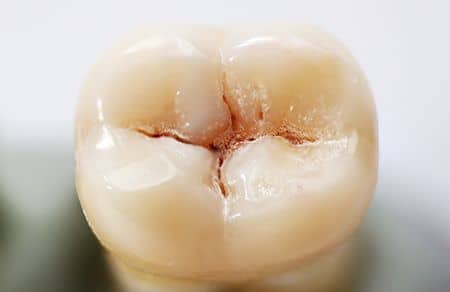Once you have your teeth restored with composite materials, these type of restorations will serve you well for years.

The materials used contain tiny particles of glass and enamel structure for strength and abrasion resistance. They are the best and newest materials available today to restore the dental structure affected by a superficial cavity, where the tooth nerve is not irritated.

You should however be aware of the following:
Just like natural teeth the resin can fracture if exposed to very large forces, so avoid chewing very tough foods (candy, drops etc.) on the restored teeth.
When you undergo anesthesia your lips, tongue and cheeks may be numb for several hours after the session. Avoid eating and drinking hot liquids until the numbness disappears. It is very easy to bite or burn your tongue or lips while the anesthesia persists.
It is normal to experience some sensitivity to hot or cold temperatures or pressure, after you have your teeth restored. The place of the anesthesia can also be a bit painful. An Ibuprofen based anti-inflammatory helps in these symptoms. If chewing sensitivity persists for more than a few days, or the symptoms to hot or cold temperatures intensifies, please contact us. Usually the deeper the treated cavity, the more sensitive the tooth will be, but the symptoms should disappear over time.
You can eat as soon as the anesthesia completely uninstalled since the fillings are already tough when you left our dentist's office. If you encounter uneven bite, the filling seems too high or if you have any questions, do not hesitate to contact us.
Read also Aftercare Instructions for Dental Crowns and Bridges.
Last updated: June 7th, 2015